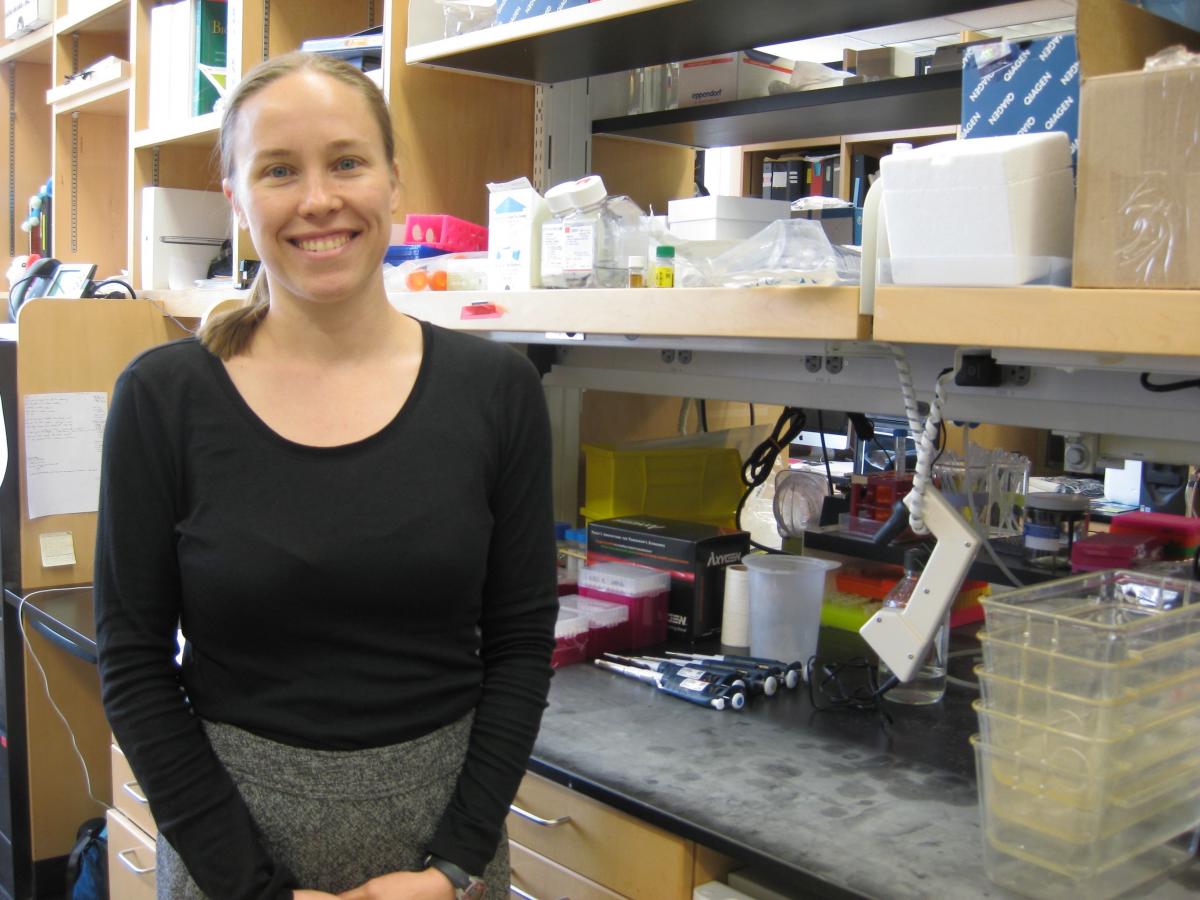The Damon Runyon Cancer Research Foundation recently asked some of our current award recipients how cancer will be prevented, diagnosed, and/or treated differently in the future. What can a future cancer patient, say 10-20 years from now, expect to experience? Their responses were fascinating, and over the next few months we will share their visions for the future on this blog.
Megan Insco, MD, PhD, Damon Runyon Fellow at Boston Children's Hospital
When I was in 7th grade, my mother was diagnosed with breast cancer. I was devastated and directionless. When she passed away two years later, my broad set of interests resolved around a singular focus. I would channel my passion for discovery and my need to see my work manifest productively in the world, into a career discovering and delivering life-enhancing therapies for cancer patients.
In the 20 years since my mother passed away, the standard of care for metastatic breast cancer has dramatically improved. I am hopeful that in the next 20 years, more patients diagnosed with early stage cancers will be cured. I am also hopeful that many more patients diagnosed with metastatic cancers will live with a chronic disease instead of a death sentence.
As several existing treatments are optimized and recent basic science discoveries make the transition to FDA approved therapies, I think patients will be treated with multiple classes of anti-cancer agents. Similar to current infectious disease treatments, anti-cancer agent combinations will be highly toxic to cancer cells, while causing minimal side effects and preventing resistance development. Increasingly, the choice of anti-cancer agents will be tailored to each patient to optimize response and avoid toxicity.
As a fellow at the Dana Farber Cancer Institute, I am privileged to work on discovering new melanoma drug targets in Leonard Zon’s Lab at Boston Children’s Hospital, while also serving patients in a clinical role. I am grateful to the Damon Runyon Cancer Research Foundation for their incredible support, allowing me the opportunity to work towards the next 20 years of advancements in research and treatment for cancer patients.








